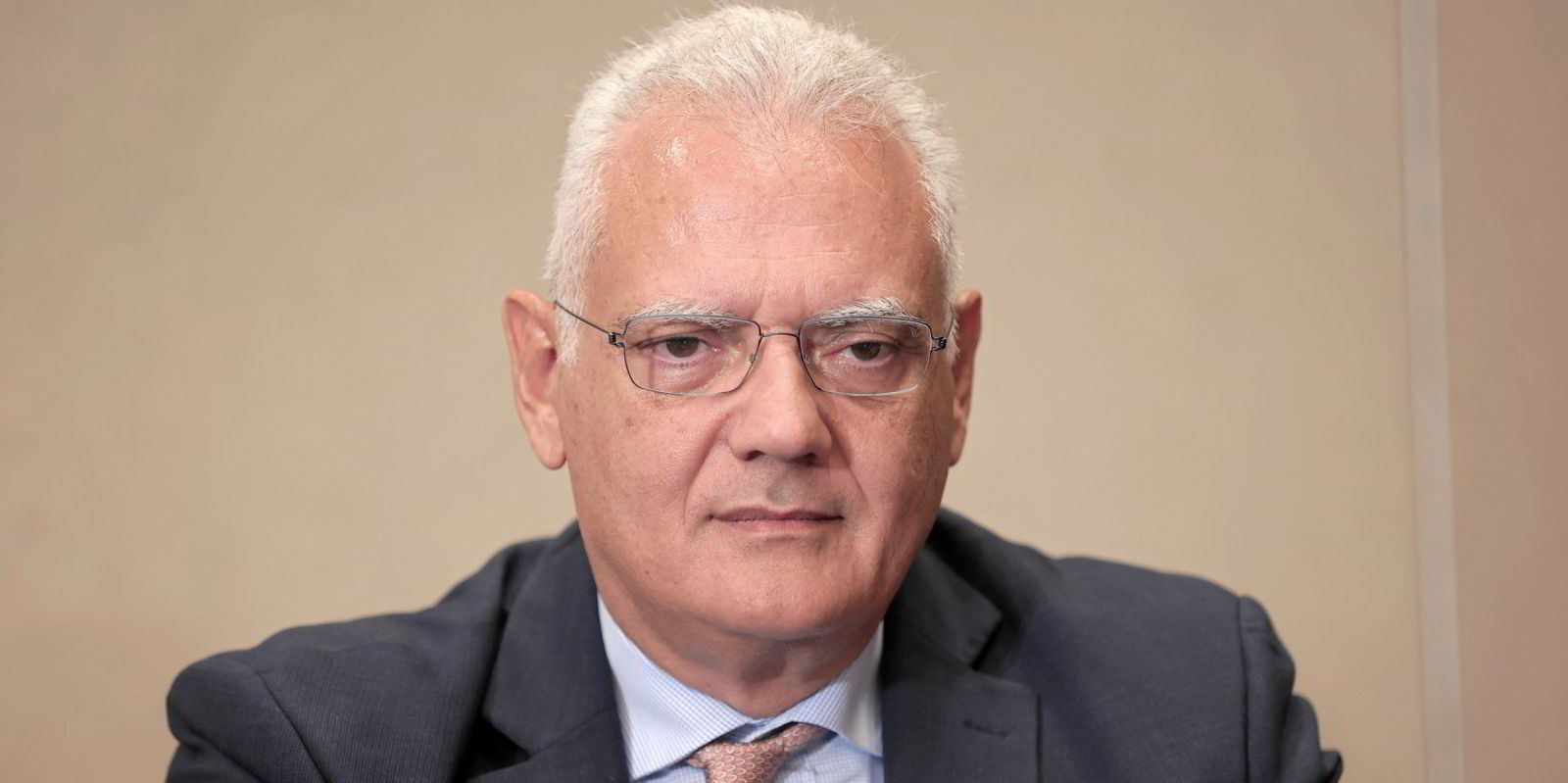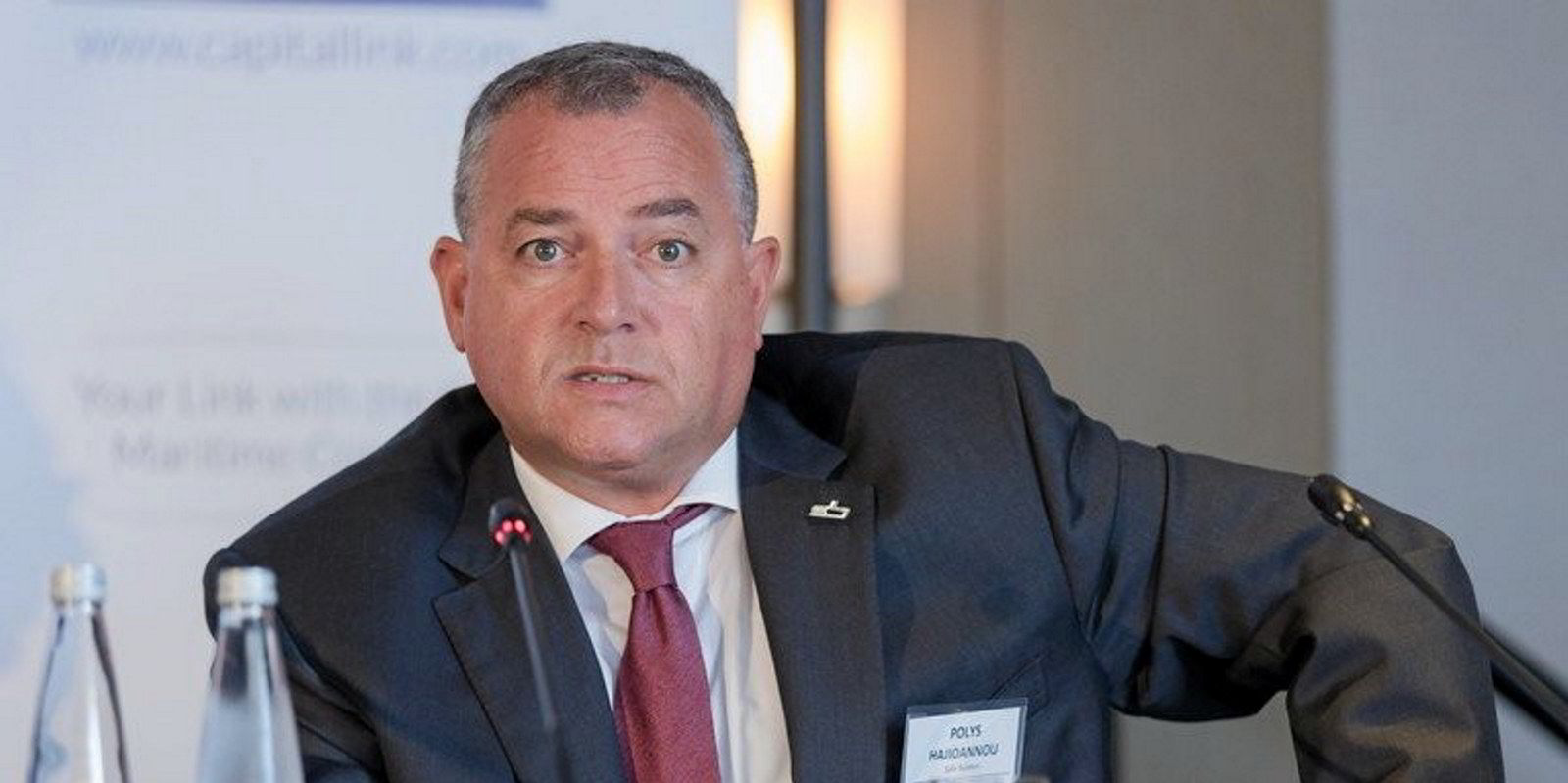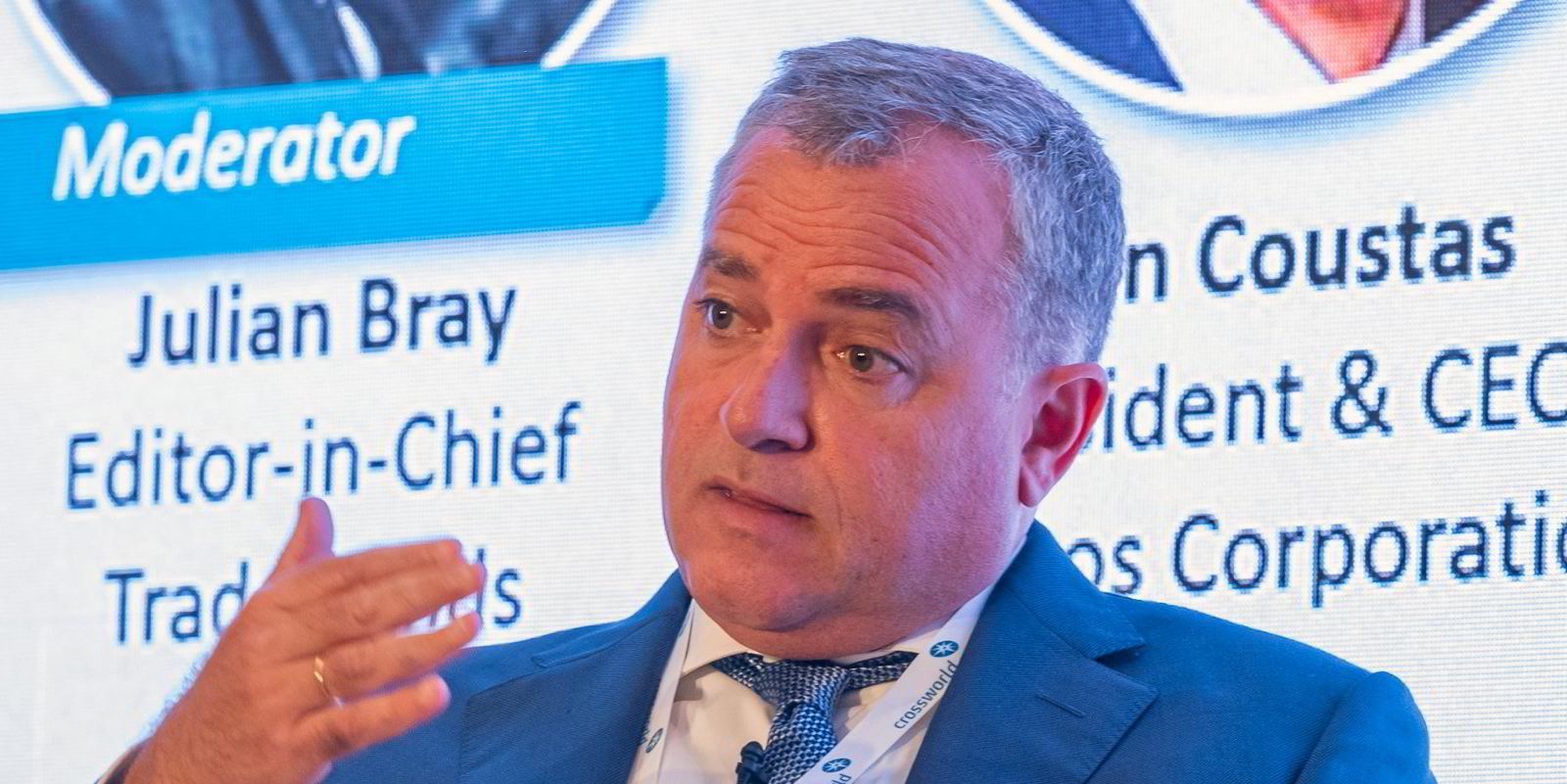Safe Bulkers, a dry cargo specialist shipowner listed in the US, is investing $580m in a multi-year newbuilding programme and has recently phased out another one of its ageing vessels.
Parallel to announcing financial earnings on Monday, the Polys Hajioannou-led company revealed that it has sold the 76,000-dwt panamax Maritsa (built 2005) to undisclosed buyers for $12.2m.
The Japanese-built ship is the oldest unit in Safe Bulkers’ fleet of 48 panamaxes, kamsarmaxes, post-panamaxes and capesizes.
It is the fifth vessel sold in a year. In parallel with these divestments, Hajioannou has been ordering newbuildings.
Safe Bulkers has invested about $580m so far in a 2022-2027 programme for 16 modern ships, nine of which have already been delivered by various Japanese yards.
“The company maintains a strong capital structure and continues the implementation of its strategy with gradual fleet renewal that leads to decreasing fleet average age,” president Loukas Barmparis said.
Following its latest newbuilding deliveries, Safe Bulkers’ average fleet age shrank below 10 years, while it maintained a liquidity stash of about $285m in cash and credit lines.
Net income dropped at an annual pace of 21% in the fourth quarter to $27.6m. For the full year, net income halved to $77.4m, primarily due to sluggish freight markets, which nonetheless showed signs of improvement towards the year’s end.
The company maintained its dividend steady for a ninth consecutive quarter at $0.05 per share.
Paints and scrubbers
Safe Bulkers expects to have an environmentally fully compliant fleet by the end of this decade that should be earning a premium on the freight market.
Newbuilding orders and the sale of older vessels are just one way to achieve this goal.
In addition, Safe Bulkers is enhancing its existing fleet of relatively older vessels by installing scrubbers, applying low-friction paints, and incorporating biofuels on select voyages.
It has completed upgrades on 21 vessels and has three more scheduled for the near future.
As of 9 February, Safe Bulkers was employing 13 vessels in the spot market. The rest are on period employment, including 11 vessels for at least two years.
In keeping with its generally conservative mindset, the company also officially stated on Monday that it does not send its ships through the Red Sea, to avoid them becoming a target for Yemen’s Houthi rebels.
This is in line with what TradeWinds has already reported about the company since December.
“We have diverted our fleet from sailing in the specific region,” Safe Bulkers said in its earnings release.
“We will continue to monitor the situation to assess whether the trade disruption could have any impact on our operations or financial performance.”
Vessels owned by US-listed companies have become preferred targets of Houthis.





